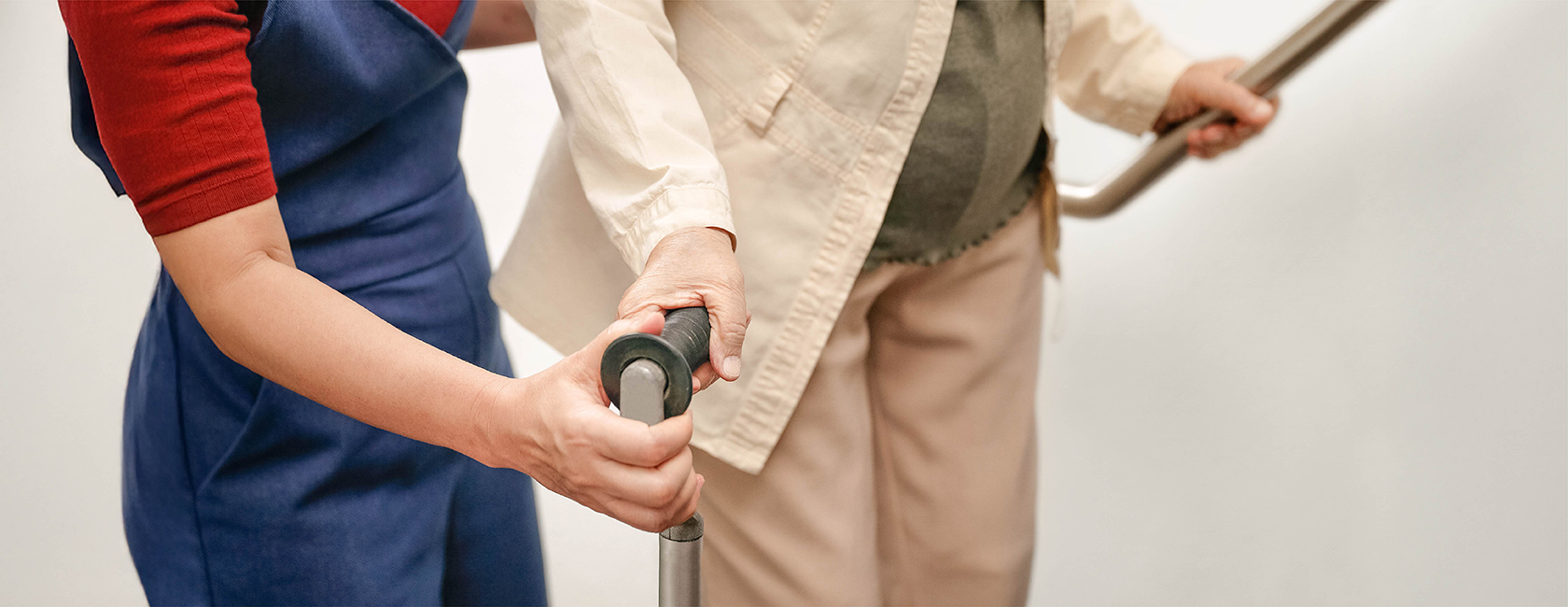Fall Prevention: Simple Tips to Prevent Falls in Elderly
Falls are one of the leading causes of injury among older adults - and often one of the most overlooked. As we age, subtle shifts in balance, muscle strength and even medication effects can increase fall risk. But the good news? Falls are preventable.

By creating a care plan for risk for falls, you can preserve independence and reduce injury. Here are six practical strategies for senior fall prevention.
1. Review Your Risks with Your Doctor
Start by scheduling a check-in with your healthcare provider. This isn’t just a routine visit - it’s a chance to pinpoint your personal fall risks.
- Bring all medications, including supplements, so your doctor can look for interactions or side-effects like dizziness or drowsiness.
- Discuss any past falls or near-falls in detail.
- Share if you’ve been experiencing dizziness, joint pain or balance issues. Your doctor might assess your gait, strength, or refer you to a specialist.
You can consult our Geriatrician & Neuro-physiotherapist at The Wisdom Club, who can help you assess your or your loved ones fall risks and develop a customised care plan, focusing on prevention, mobility and safety.
2. Stay Active
Staying active is one of the most powerful tools in elderly fall prevention.
Low-impact exercises like yoga, walking or swimming enhance flexibility, coordination and balance. If fear of falling is keeping you or your loved one inactive, consult a physiotherapist who can create a safe, personalised movement plan.
Motion builds muscle and confidence.
3. Choose the Right Footwear
Your shoes can either stabilise or impair you. Avoid high heels, floppy slippers, or slick soles. Instead, opt for well-fitting, supportive shoes with non-slip soles. The right footwear can reduce joint pain and lower your risk of slipping - making it a simple but vital change in any senior citizen fall prevention plan.
4. Home Improvement for Easy Accessibility
Your home should support you, not trip you up. Scan every room for risks:
- Clear clutter, wires and slippery rugs from walkways
- Repair loose flooring immediately
- Store essentials at waist height, so that no climbing is required
- Use non-slip mats, anti-slip flooring and consider a bath seat in the bathroom
A safer home is essential for sustainable old age caring.
5. Light Your Way
Good lighting prevents missteps. Poor lighting hides hazards.
- Use night lights in bedrooms, bathrooms and halls
- Keep a lamp within reach of the bed
- Swap standard switches for illuminated ones
- Store flashlights in accessible spots in case of outages
Bright spaces help you stay aware, alert and upright.
6. Use Assistive Tools
Don’t view assistive devices as a loss of independence - they help preserve it. So don’t shy away from using them.
Some helpful aids include:
- Canes and walkers for support
- Grab bars near toilets and showers
- Raised toilet seats with armrests
- Shower chairs and handheld nozzles
- Railings on both sides of stairways
Consult our experts at The Wisdom Club, Vile Parle for mobility training using assistive tools and home safety recommendations for safe, comfortable living.
Fall prevention isn’t complicated - it’s about awareness, small changes and consistent care. Whether you’re caring for an elder or preparing your own home, these steps can help you maintain mobility, confidence and independence.
A smart approach to senior fall prevention is an investment in freedom - for today and for the years ahead.
you can trust.

